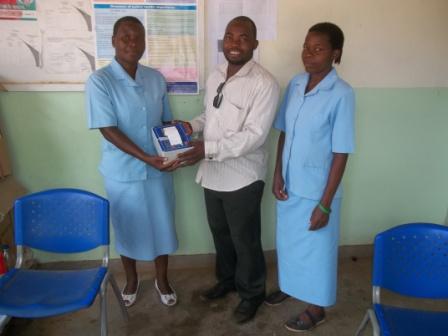
When I was very young, I had a dream of becoming a primary school teacher. I had this dream because I greatly admired my father who was a primary school teacher. When years passed by, the dream changed. I wanted to become a police man. I wanted to become a police man because I admired the hats that they wear.
Growing up like an orphan swept away all the dreams. I grew up living in difficult circumstances. I had one shirt and one pair of shorts for a long time. Some nights I would go without eating anything. I could not think of having a pair of shoes because doing so was really building a castle in the air. My mind was full of more questions than answers. The most burning question was, “why was I in such a situation when my peers were wearing good clothes and nice shoes, and eating every day?’
When all this was happening, I remembered the words that my late father used to tell me now and again: “If you want to be better off in life and become a responsible citizen, work hard in school.” This statement gave me strength every day. It encouraged me to never look at the problems I was facing in a negative way, but rather have a big picture of my life and concentrate on my studies.
The problems I faced when I was young shaped my vision. I developed a strong passion for others. I actually don’t feel comfortable when I see people suffering. The passion for others influenced me to start thinking of ways on how I can help those that cannot help themselves. Due to lack of resources, my passion for others did not come clearly as I was unable to provide any material support to the needy.
When I was in the last year of studies in college, I decided to develop a computer program (a database) for an orphanage called Malawi Children’s’ Village (MCV). The idea behind developing the program was to rescue the organizations from numerous problems they faced in capturing, organizing, storing and processing data into information for decision making. The problems the organization faced had negative consequences for orphans and vulnerable children. They organization could not allocate the support to the children accordingly as well as failing to meet reporting deadlines to donors. I felt that by developing the system, I was indirectly bailing out hundreds of children who were facing similar problems I used to face when I was young.
When I came across GHC’s advert on Facebook calling for eligible candidate to apply, I felt really relieved. I considered this to be my opportunity to explicitly show my passion for the others. My excitement grew when I was finally selected to become a 2012-2013 GHC fellow and placed at Clinton Health Access Initiative (CHAI) to work as systems analyst for Early Infant Diagnosis Laboratory Information Management System (EID LIMS).
After successfully going through the two week intensive training at YALE University in USA, I was more than eager to get down home and start working. My placement organization picked the two of us (me and my co-fellow Serena Parcell) from the airport straight to the office where orientation started immediately before we could have a rest from a very long flight.
Our supervisor shared the responsibilities between us. I was to be more involved into mHealth Initiatives. Two days later, I was asked to move around the country visiting four major laboratories doing an IT infrastructure assessment. The idea for carrying out the exercise was to identify gaps and challenges each laboratory facing in order to meet the technical requirements of the EID LIM.
This exercise was the first eye opener for how much work was ahead of me for my fellowship year. I was to quickly learn the best way of doing things to meet the working culture of my placement organization. The working culture requires one to be fast, detailed and accurate. It is always a challenge to balance the three.
As weeks went by, l integrated well into the system and became part and parcel of the system. Every day is different. There are new dimensions of work popping up. A secret to getting things done is to be flexible and dynamic.
Before becoming a Global Health Corps (GHC) fellow, I never imagined that one day I will be visiting hospitals, working with nurses, doctors, Health Surveillance Assistants (HSAs), Community nurses and other health workers. I was very excited when I realized that this will be the order of the day at Clinton Health Access Initiative (CHAI). In no time, I found myself in my home area training health workers how to use SMS printers to receive results for Deoxyribonucleic Acid (DNA) Polymerase Chain Reaction (PCR) tests. I was very excited to see myself doing this in the area I grew up.
This experience demonstrated to me the power of asking why we found ourselves in situations we are. This question actually helps us to have a big picture of life and eventually keep us focused and determined. Therefore, let us all learn to develop the skill of asking ourselves why are we in the situations we are.
